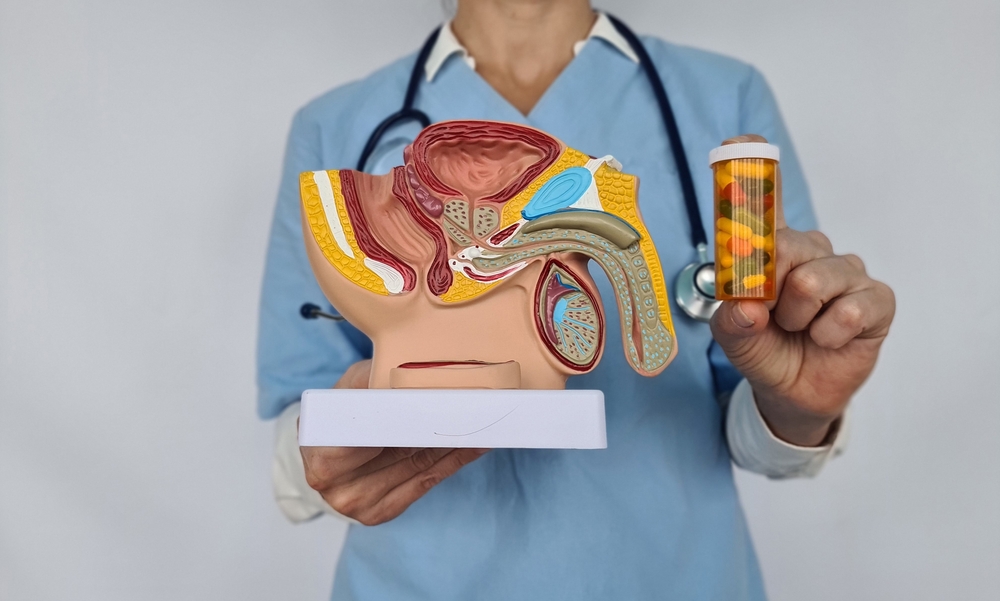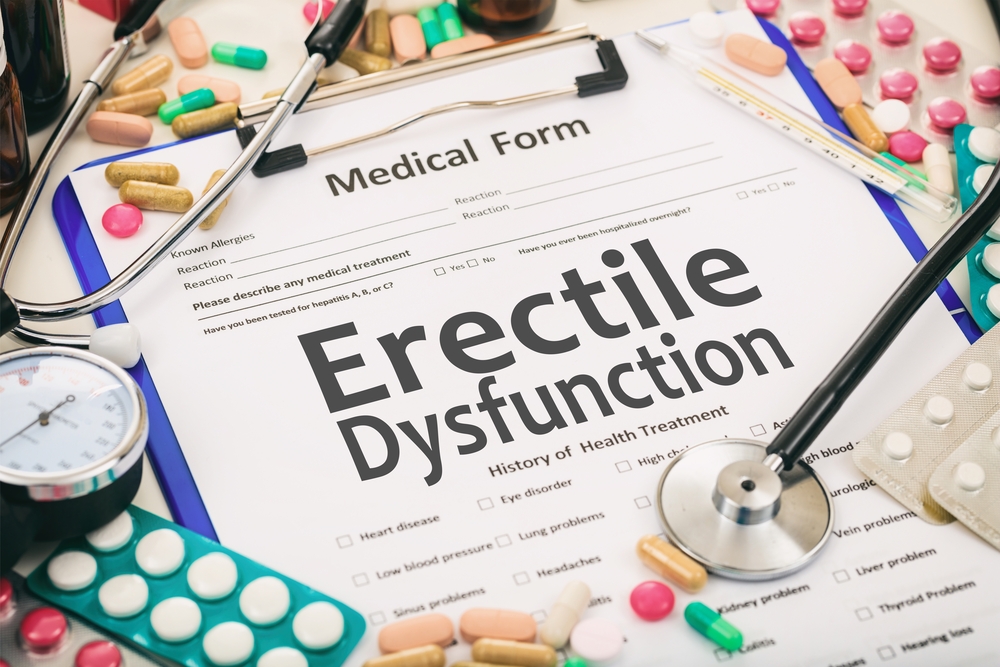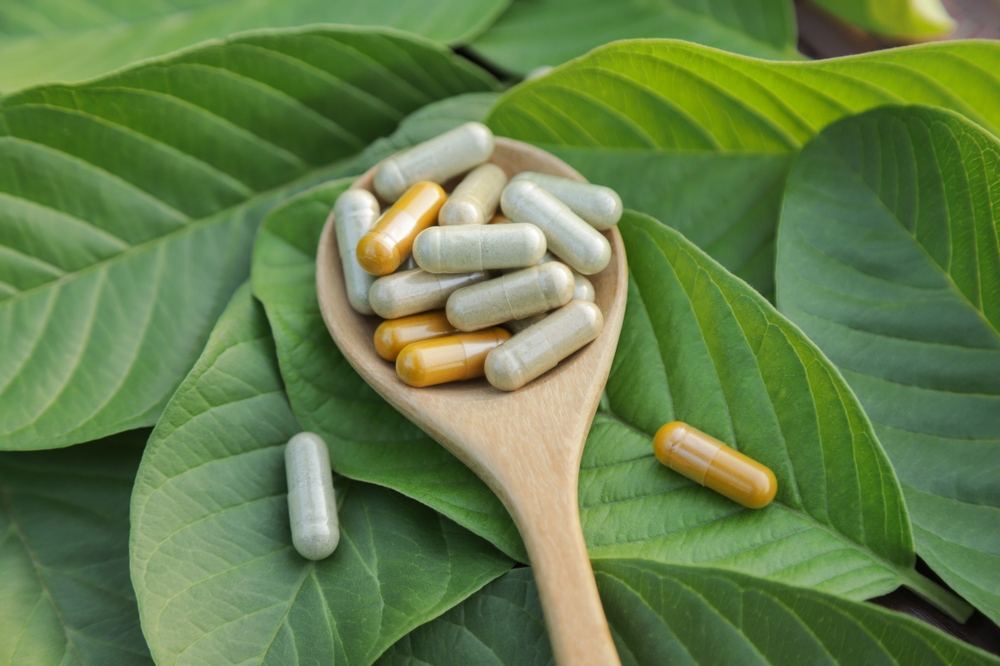
Top Viagra Alternatives for Erectile Dysfunction
When it comes to erectile dysfunction (ED), most people immediately think of Viagra. That’s because it was the first oral pill – approved by the FDA in 1998 – to treat ED.
While Viagra can be increasingly effective in treating ED, it’s not the only solution. For instance, if the price of Viagra doesn’t fit within your budget, you can consider its generic version called sildenafil, which is much more affordable. And if you wish to avoid medication altogether, there are other doctor-approved Viagra alternatives that can be just as effective.
This article will explain some of the best Viagra alternatives, including prescription, herbal, and lifestyle changes, to treat your erectile dysfunction.

How To Treat Erectile Dysfunction: Top Prescription Viagra Substitutes
Erectile dysfunction (ED) is a common condition that affects many men worldwide, including the US. Don’t believe us, believe the stat:
According to one report, more than 18 Million men in the US over age 20 experience erectile dysfunction.
While Viagra is often the go-to prescription medication, there are various alternative ED pills available that can help improve erectile function. It’s important to note that each person’s body may respond differently to these medications. Therefore, determining which one works best for you may take some trial and error.
Although erectile dysfunction pills are designed to increase blood flow to the penis – which can help you get an erection – simply taking oral medications isn’t enough. Make sure to pair your prescription medications with physical or emotional sexual stimulation to be effective. Keeping that in mind, here are some of the popular prescribed oral ED treatments:
Tadalafil (Cialis)
Cialis is a popular option to treat erectile dysfunction.
This oral tablet starts working about 30 minutes after you take it and can improve sexual function for up to 36 hours. The typical starting dose is 2.5 to 5 milligrams (mg), but it can be increased to 20 mg in some cases. You can take Cialis as needed before sexual activity. However, you should not take it more than once per day.
There’s also a once-daily version (2.5 mg tablets) that you take at the same time every day, which means you won’t need to time it around sexual encounters. You can take this medication with or without food.
Vardenafil (Levitra)
Vardenafil – the active ingredient in Levitra and Staxyn – is another effective option. Take it about one hour before sexual activity, with a typical starting dose of 10 mg. Like other ED pills, it should not be taken more than once a day, and you can consume it with or without food.
Vardenafil (Staxyn)
Staxyn dissolves on your tongue, unlike most oral tablets you swallow with water. Take the pill about one hour before your sexual activity. Remember not to split or crush the tablet. You can have it with or without your meals, but you can’t take it with liquids. The tablet contains 10 mg of medication, and it’s best to take one tablet per day.
Avanafil (Stendra)
Stendra is a newer ED medication available in 50, 100, and 200 mg tablets. It works fast — you can take it just 15 to 30 minutes before sexual activity. Like other ED medications, it’s best not to use it more than once a day. Stendra can also be taken with or without food.
Alprostadil Injections: Caverject and Edex
For those who prefer or require a non-pill option, Alprostadil injections (Caverject and Edex) can be a good option to treat ED.
This medication is injected directly into the base of the penis. It helps relax muscles and widen blood vessels to increase blood flow, which can help achieve an erection within 5 to 20 minutes. While Alprostadil can be very effective, the injection location (or approach) may not appeal to everyone. One-third of users report penile pain after the injection.
Before you start Alprostadil, you’ll need proper training on how to administer these injections to avoid complications like scar tissue (penile fibrosis). Also, you shouldn’t use Alprostadil more than three times a week.
Risk Factors & Side Effects Of ED Medications
Before you take any medication for erectile dysfunction (ED), it’s essential to discuss your health history with your doctor. This includes any existing conditions and other drugs or supplements you use.
That’s because some ED medications can interact with other prescriptions, potentially leading to serious side effects.
When Not To Take ED Medications
You should not take erectile dysfunction pills if you:
- Use nitrates, often prescribed for chest pain (angina)
- Have low blood pressure (hypotension)
Your healthcare provider may also advise against using ED treatments if you:
- Take medications that can interact with ED drugs
- Have uncontrolled high blood pressure (hypertension)
- Suffer from liver disease
- Are on dialysis for kidney disease
Common Side Effects Of Erectile Dysfunction Medications
The most common side effects of ED drugs – whether oral, injectable, or compounded medications – are mild and temporary. They may include:
- Headache
- Upset stomach or indigestion
- Back pain
- Muscle aches
- Flushing
- Nausea
- Rashes
- Stuffy or runny nose
Even though it’s uncommon, some oral and injectable medications may cause a painful erection that won’t go away (priapism). If an erection lasts more than 4 hours, it’s best to seek immediate medical assistance to avoid permanent damage.
Other uncommon issues include changes in hearing or vision, such as trouble seeing colors. When considering Viagra substitutes for treating ED, remember that these medications can impact blood pressure and sexual desire.
So, always consult your healthcare provider to find the safest and most effective option for your needs.

Over-The-Counter Herbs And Supplements: Natural Viagra Alternatives To Improve Erectile Function
Many over-the-counter (OTC) herbal dietary supplements claim to be Viagra alternatives for treating erectile dysfunction (ED).
However, these products aren’t FDA-approved, and more research is needed about their efficacy or safety. Before you take any of these OTC supplements, it’s crucial to consult your doctor. They can help you determine if these options are safe and suitable for your needs.
Here are a few popular OTC supplements and herbs you should take to treat ED:
L-Arginine
L-arginine is an amino acid found in foods like red meat and dairy. It converts into nitric oxide in the body, which helps widen blood vessels and improve blood flow.
This can support erectile function by increasing blood flow to the penis. Health professionals often recommend 2.5 to 5 grams of L-arginine per day to treat ED. Some studies show that it may be helpful for mild to moderate ED.
However, L-arginine doesn’t help with severe ED or cases not related to blood flow issues. Often, it works best when combined with PDE5 inhibitors like Viagra. No matter what, you have to be cautious with L-arginine as it’s not safe for all men. For instance, it can be lethal when taken soon after a heart attack.
It may also be harmful to people with kidney problems or those who take medications for high blood pressure or diabetes. It’s better to consult a healthcare provider before using it.
Ginseng
Ginseng is a popular herbal supplement that helps reduce stress and boost sexual desire by increasing nitric oxide levels, which may enhance blood flow and erectile function.
However, research on ginseng for ED is limited, with only a few low-quality studies showing it may be slightly more effective than a placebo. Ginseng can interact with blood thinners, antidepressants, and blood pressure medications, so check with your doctor before use.
Yohimbine
Derived from the bark of the African Yohimbe tree, yohimbine has been traditionally used as an aphrodisiac. Some studies suggest it may help with erectile function, especially when paired with other ED treatments like L-arginine.
However, there are a few risks with yohimbine. Many OTC supplements contain unpredictable doses, which can lead to side effects such as rapid heart rate, anxiety, or even heart attacks. Due to its side effects and unreliable potency, yohimbine is banned or restricted in many countries.
Horny Goat Weed (Epimedium)
Horny goat weed is another herbal supplement traditionally used in Chinese medicine to boost sexual desire and blood flow. It contains phytoestrogens, which are plant-based estrogens.
Despite its popularity, there’s no solid evidence that horny goat weed effectively treats ED or improves sexual function. Health professionals rate this herbal supplement as potentially safe when taken orally. However, it may interact with medications such as blood thinners and those used for lowering blood pressure.
Make sure to consult a healthcare professional before trying this herb.
DHEA (Dehydroepiandrosterone)
Dehydroepiandrosterone (DHEA) is a hormone your body naturally produces, but its levels decrease as you age. DHEA is converted into sex hormones like testosterone and estrogen.
Some studies have explored whether taking DHEA supplements can help with erectile dysfunction (ED). However, the results are mixed, and it’s still unclear if DHEA truly helps with ED. Most health experts consider DHEA to be possibly safe for most people.
But it’s crucial not to take more than 50 to 100 mg per day or use it for extended periods. High doses can increase the risk of serious side effects, including certain cancers. DHEA can also interact with various health conditions and medications.
Lifestyle Changes: Non-Medical ED Treatment
The best way to improve erectile dysfunction (ED) is to adopt a healthier lifestyle.
While it can be challenging, a few simple lifestyle changes can substantially enhance erections and reduce your need for medication.
Weight Loss
Losing weight can have a big impact on sexual function, especially if you have ED. Research shows that weight loss can improve or even normalize sexual function.
If your BMI is over 30, shedding some pounds could significantly ease your ED symptoms. Start small by taking brisk walks and cutting out sugary snacks or drinks. You could also try the NHS 12-week weight loss plan for a structured guide to healthier living.
Quit Smoking
Smoking damages blood vessels, including those that supply blood to the penis. Nicotine reduces blood flow, so quitting smoking entirely can help improve your symptoms.
Studies show that men who smoke are more likely to experience ED. Quitting can lead to short-term benefits like stronger and longer-lasting erections, as well as long-term improvements in heart health, which reduces the risk of ED linked to heart conditions such as high blood pressure.
Exercise & ED
Regular exercise can boost cardiovascular health, helping your heart pump blood more efficiently, which can improve ED symptoms.
Pelvic floor exercises, in particular, can strengthen male sexual health. However, excessive cycling may contribute to ED, so consider reducing it if you’re having issues. Also, it’s best to talk to your doctor for exercise recommendations.
Reduce Stress
Stress can lead to ED in men of all ages. Techniques such as mindfulness or meditation can help you manage stress better. Opening up to someone, especially your partner, about your worries may also be helpful.
Counseling
Counseling can address a range of underlying issues, such as trauma or relationship problems that may worsen ED. It can also help with anxiety or depression, which can trigger ED, especially if you’re on antipsychotic medication.
Here are a few types of therapy you can take for ED:
- Sensate Focus: A couples therapy that builds intimacy by avoiding sexual pressure.
- Psychosexual Counseling: A safe space to discuss sexual issues, focusing on honesty and communication.
- Cognitive Behavioral Therapy (CBT): Helps you overcome self-esteem issues and negative thoughts that can affect sexual performance.
Vacuum Pumps
Vacuum pumps are a non-drug option for treating ED. They help improve blood flow to the penis, helping you achieve and maintain an erection.
Conclusion
Erectile dysfunction can be a challenging condition for men, but there are many effective treatments available beyond just Viagra. Whether you prefer medication, lifestyle changes, or non-drug solutions, there’s likely an option that suits your needs and budget.
It’s essential to consult with a healthcare professional to find the best solution for you. Your doctor can help you explore these alternatives, considering factors like your overall health, lifestyle, and any other medications you may be taking.
Remember, ED is a common issue, and you’re not alone in facing it. With the right approach, you can find a solution that works for you and get back to enjoying a healthy and satisfying sex life.